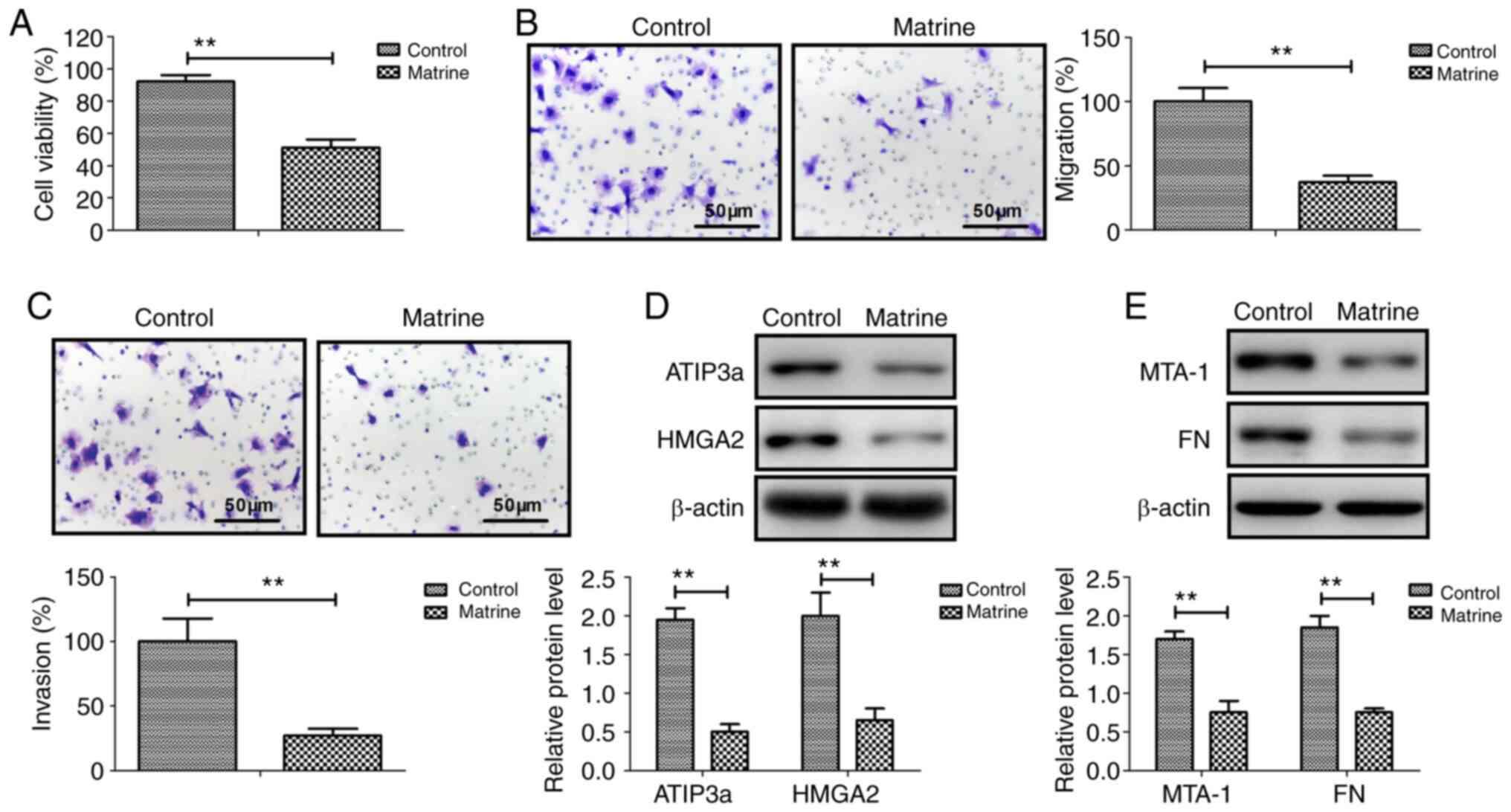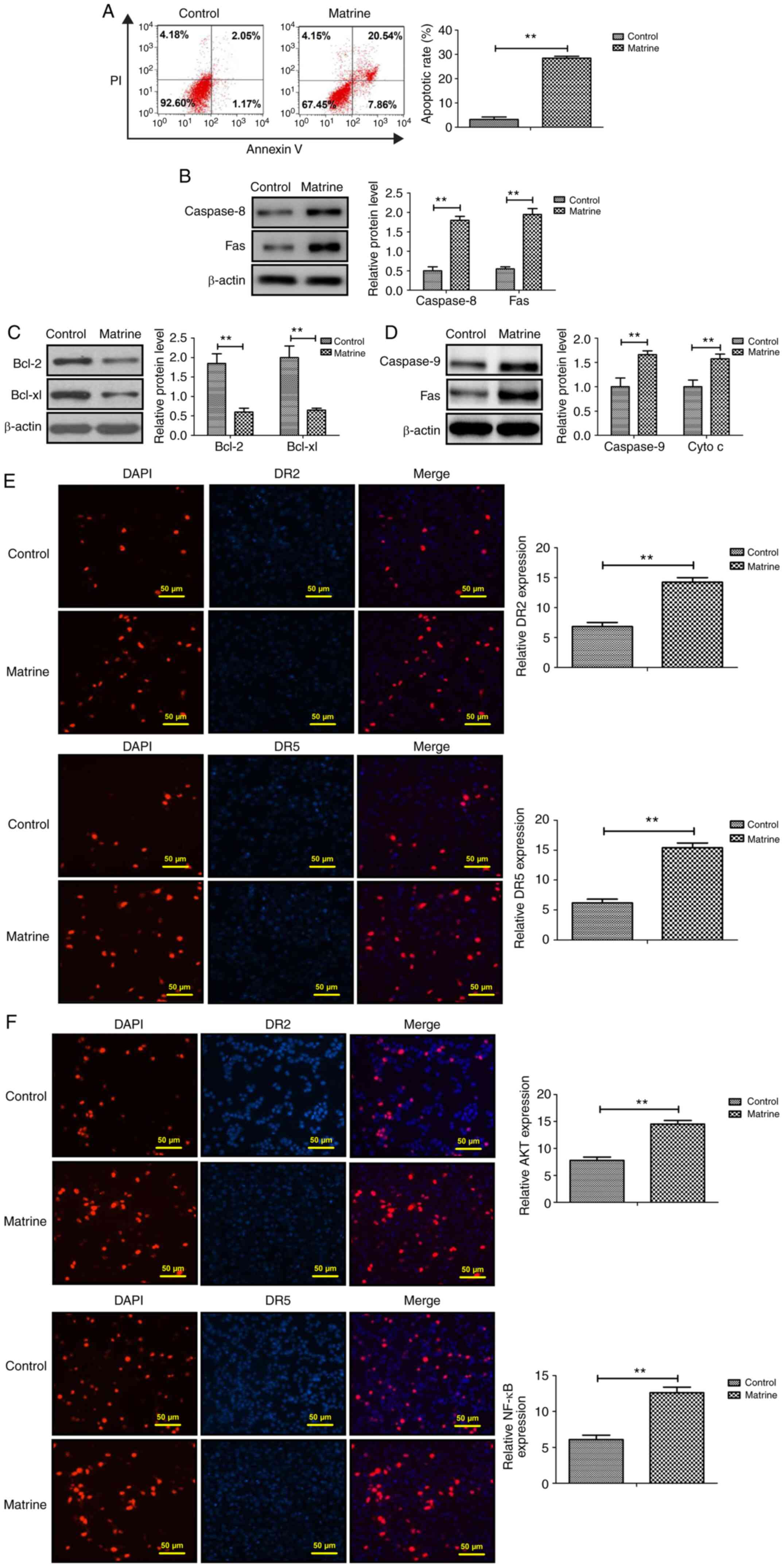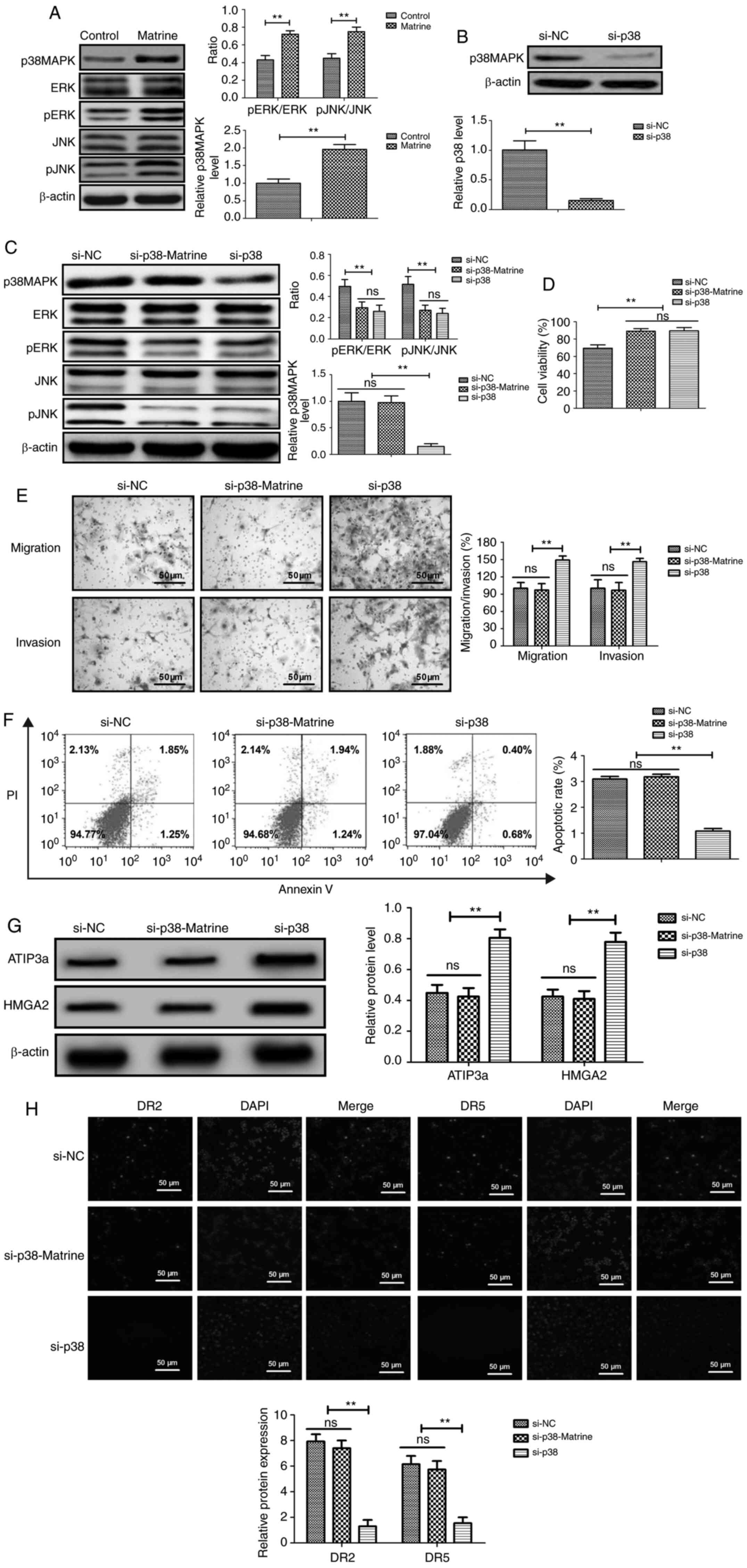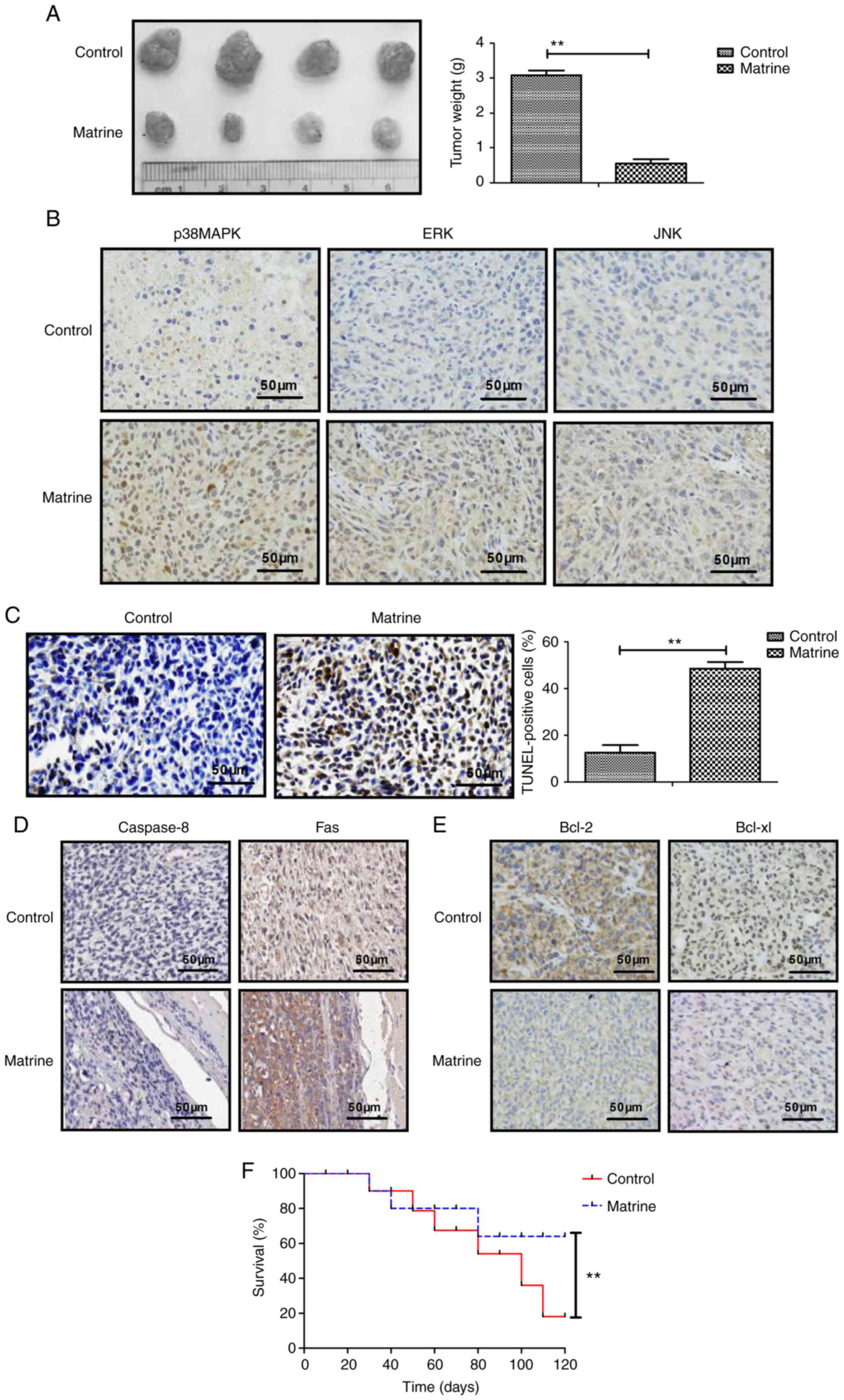|
1
|
Ahmed-Lecheheb D and Joly F: Ovarian
cancer survivors' quality of life: A systematic review. J Cancer
Surviv. 10:789–801. 2016. View Article : Google Scholar : PubMed/NCBI
|
|
2
|
Ebell MH, Culp MB and Radke TJ: A
systematic review of symptoms for the diagnosis of ovarian cancer.
Am J Prev Med. 50:384–394. 2016. View Article : Google Scholar : PubMed/NCBI
|
|
3
|
Alipour S, Zoghi S, Khalili N,
Hirbod-Mobarakeh A, Emens LA and Rezaei N: Specific immunotherapy
in ovarian cancer: A systematic review. Immunotherapy. 8:1193–1204.
2016. View Article : Google Scholar : PubMed/NCBI
|
|
4
|
Tempfer CB, El Fizazi N, Ergonenc H and
Solass W: Metastasis of ovarian cancer to the breast: A report of
two cases and a review of the literature. Oncol Lett. 11:4008–4012.
2016. View Article : Google Scholar : PubMed/NCBI
|
|
5
|
Silva C, Caramelo O, Almeida-Santos T and
Ribeiro Rama AC: Factors associated with ovarian function recovery
after chemotherapy for breast cancer: A systematic review and
meta-analysis. Hum Reprod. 31:2737–2749. 2016. View Article : Google Scholar : PubMed/NCBI
|
|
6
|
Wands JR: Prevention of hepatocellular
carcinoma. N Engl J Med. 351:1567–1570. 2004. View Article : Google Scholar : PubMed/NCBI
|
|
7
|
Zhang Z, Wang X, Wu W, Wang J, Wang Y, Wu
X, Fei X, Li S, Zhang J, Dong P, et al: Effects of matrine on
proliferation and apoptosis in gallbladder carcinoma cells
(GBC-SD). Phytother Res. 26:932–937. 2012. View Article : Google Scholar : PubMed/NCBI
|
|
8
|
Zhang P, Wang Z, Chong T and Ji Z: Matrine
inhibits proliferation and induces apoptosis of the
androgenindependent prostate cancer cell line PC-3. Mol Med Rep.
5:783–787. 2012.PubMed/NCBI
|
|
9
|
Tang XB, Shen XH, Li L, Zhang YF and Chen
GQ: SOX2 overexpression correlates with poor prognosis in laryngeal
squamous cell carcinoma. Auris Nasus Larynx. 40:481–486. 2013.
View Article : Google Scholar : PubMed/NCBI
|
|
10
|
Lao Y: Clinical study of matrine injection
on preventing liver function damage of anti-tumor drugs during
chemotherapy of breast cancer. Zhong Yao Cai. 28:735–737. 2005.(In
Chinese). PubMed/NCBI
|
|
11
|
Lao Y: Clinical study on effect of matrine
injection to protect the liver function for patients with primary
hepatic carcinoma after trans-artery chemo-embolization (TAE)].
Zhong Yao Cai. 28:637–638. 2005.(In Chinese). PubMed/NCBI
|
|
12
|
Chang C, Liu SP, Fang CH, He RS, Wang Z,
Zhu YQ and Jiang SW: Effects of matrine on the proliferation of
HT29 human colon cancer cells and its antitumor mechanism. Oncol
Lett. 6:699–704. 2013. View Article : Google Scholar : PubMed/NCBI
|
|
13
|
Shao H, Yang B, Hu R and Wang Y: Matrine
effectively inhibits the proliferation of breast cancer cells
through a mechanism related to the NF-kB signaling pathway. Oncol
Lett. 6:517–520. 2013. View Article : Google Scholar : PubMed/NCBI
|
|
14
|
Liu Y, Xu Y, Ji W, Li X, Sun B, Gao Q and
Su C: Anti-tumor activities of matrine and oxymatrine: Literature
review. Tumour Biol. 35:5111–5119. 2014. View Article : Google Scholar : PubMed/NCBI
|
|
15
|
Shibata S, Marushima H, Asakura T,
Matsuura T, Eda H, Aoki K, Matsudaira H, Ueda K and Ohkawa K:
Three-dimensional culture using a radial flow bioreactor induces
matrix metalloprotease 7-mediated EMT-like process in tumor cells
via TGFbeta1/Smad pathway. Int J Oncol. 34:1433–1448.
2009.PubMed/NCBI
|
|
16
|
Deschenes-Simard X, Gaumont-Leclerc MF,
Bourdeau V, Lessard F, Moiseeva O, Forest V, Igelmann S, Mallette
FA, Saba-El-Leil MK, Meloche S, et al: Tumor suppressor activity of
the ERK/MAPK pathway by promoting selective protein degradation.
Genes Dev. 27:900–915. 2013. View Article : Google Scholar : PubMed/NCBI
|
|
17
|
Echevarria-Vargas IM, Valiyeva F and
Vivas-Mejia PE: Upregulation of miR-21 in cisplatin resistant
ovarian cancer via JNK-1/c-Jun pathway. PLoS One. 9:e970942014.
View Article : Google Scholar : PubMed/NCBI
|
|
18
|
Sheppard KE, Cullinane C, Hannan KM, Wall
M, Chan J, Barber F, Foo J, Cameron D, Neilsen A, Ng P, et al:
Synergistic inhibition of ovarian cancer cell growth by combining
selective PI3K/mTOR and RAS/ERK pathway inhibitors. Eur J Cancer.
49:3936–3944. 2013. View Article : Google Scholar : PubMed/NCBI
|
|
19
|
Liu HZ, Yu C, Yang Z, He JL, Chen WJ, Yin
J, Li WM, Liu HT and Wang YX: Tubeimoside I sensitizes cisplatin in
cisplatin-resistant human ovarian cancer cells (A2780/DDP) through
down-regulation of ERK and up-regulation of p38 signaling pathways.
Mol Med Rep. 4:985–992. 2011.PubMed/NCBI
|
|
20
|
Zhao T, Ding X, Chang B, Zhou X and Wang
A: MTUS1/ATIP3a down-regulation is associated with enhanced
migration, invasion and poor prognosis in salivary adenoid cystic
carcinoma. BMC Cancer. 15:2032015. View Article : Google Scholar : PubMed/NCBI
|
|
21
|
Molina A, Velot L, Ghouinem L, Abdelkarim
M, Bouchet BP, Luissint AC, Bouhlel I, Morel M, Sapharikas E, Di
Tommaso A, et al: ATIP3, a novel prognostic marker of breast cancer
patient survival, limits cancer cell migration and slows metastatic
progression by regulating microtubule dynamics. Cancer Res.
73:2905–2915. 2013. View Article : Google Scholar : PubMed/NCBI
|
|
22
|
Malek A, Bakhidze E, Noske A, Sers C,
Aigner A, Schäfer R and Tchernitsa O: HMGA2 gene is a promising
target for ovarian cancer silencing therapy. Int J Cancer.
123:348–356. 2008. View Article : Google Scholar : PubMed/NCBI
|
|
23
|
Kumar R: Functions and clinical relevance
of MTA proteins in human cancer. Preface. Cancer Metastasis Rev.
33:8352014. View Article : Google Scholar : PubMed/NCBI
|
|
24
|
Levenson AS, Kumar A and Zhang X: MTA
family of proteins in prostate cancer: Biology, significance, and
therapeutic opportunities. Cancer Metastasis Rev. 33:929–942. 2014.
View Article : Google Scholar : PubMed/NCBI
|
|
25
|
Tuncay Cagatay S, Cimen I, Savas B and
Banerjee S: MTA-1 expression is associated with metastasis and
epithelial to mesenchymal transition in colorectal cancer cells.
Tumour Biol. 34:1189–1204. 2013. View Article : Google Scholar : PubMed/NCBI
|
|
26
|
Kenny HA, Chiang CY, White EA, Schryver
EM, Habis M, Romero IL, Ladanyi A, Penicka CV, George J, Matlin K,
et al: Mesothelial cells promote early ovarian cancer metastasis
through fibronectin secretion. J Clin Invest. 124:4614–4628. 2014.
View Article : Google Scholar : PubMed/NCBI
|
|
27
|
Yousif NG: Fibronectin promotes migration
and invasion of ovarian cancer cells through up-regulation of
FAK-PI3K/Akt pathway. Cell Biol Int. 38:85–91. 2014. View Article : Google Scholar : PubMed/NCBI
|
|
28
|
Rong B, Zhao C, Gao W and Yang S: Matrine
promotes the efficacy and safety of platinum-based doublet
chemotherapy for advanced non-small cell lung cancer. Int J Clin
Exp Med. 8:14701–14717. 2015.PubMed/NCBI
|
|
29
|
Yoshikawa N, Kajiyama H, Nakamura K,
Utsumi F, Niimi K, Mitsui H, Sekiya R, Suzuki S, Shibata K, Callen
D and Kikkawa F: PRIMA-1MET induces apoptosis through accumulation
of intracellular reactive oxygen species irrespective of p53 status
and chemo-sensitivity in epithelial ovarian cancer cells. Oncol
Rep. 35:2543–2552. 2016. View Article : Google Scholar : PubMed/NCBI
|
|
30
|
Nordin N, Fadaeinasab M, Mohan S, Hashim
NM, Othman R, Karimian H, Iman V, Ramli N, Ali HM and Majid NA:
Pulchrin A, a new natural coumarin derivative of enicosanthellum
pulchrum, induces apoptosis in ovarian cancer cells via intrinsic
pathway. PLoS One. 11:e01540232016. View Article : Google Scholar : PubMed/NCBI
|
|
31
|
Kim M, Hernandez L and Annunziata CM:
Caspase 8 expression may determine the survival of women with
ovarian cancer. Cell Death Dis. 7:e20452016. View Article : Google Scholar : PubMed/NCBI
|
|
32
|
Maurmann L, Belkacemi L, Adams NR,
Majmudar PM, Moghaddas S and Bose RN: A novel cisplatin mediated
apoptosis pathway is associated with acid sphingomyelinase and FAS
proapoptotic protein activation in ovarian cancer. Apoptosis.
20:960–974. 2015. View Article : Google Scholar : PubMed/NCBI
|
|
33
|
Cohen M, Pierredon S, Wuillemin C, Delie F
and Petignat P: Acellular fraction of ovarian cancer ascites induce
apoptosis by activating JNK and inducing BRCA1, Fas and FasL
expression in ovarian cancer cells. Oncoscience. 1:262–271. 2014.
View Article : Google Scholar : PubMed/NCBI
|
|
34
|
Shijo M, Fukase K, Ohtsuka H, Ariake K,
Masuda K, Ishida M, Mizuma M, Nakagawa K, Hayashi H, Morikawa T, et
al: Metastasis of ovarian cancer to the bile duct: A case report.
Surg Case Rep. 5:1002019. View Article : Google Scholar : PubMed/NCBI
|
|
35
|
Yang QY, Li JH, Wang QY, Wu Y, Qin JL,
Cheng JJ and Qiu J: MTA1 promotes cell proliferation via DNA damage
repair in epithelial ovarian cancer. Genet Mol Res. 13:10269–10278.
2014. View Article : Google Scholar : PubMed/NCBI
|
|
36
|
Carduner L, Agniel R, Kellouche S, Picot
CR, Blanc-Fournier C, Leroy-Dudal J and Carreiras F: Ovarian cancer
ascites-derived vitronectin and fibronectin: Combined purification,
molecular features and effects on cell response. Biochim Biophys
Acta. 1830:4885–4897. 2013. View Article : Google Scholar : PubMed/NCBI
|
|
37
|
Califano D, Pignata S, Losito NS, Ottaiano
A, Greggi S, De Simone V, Cecere S, Aiello C, Esposito F, Fusco A
and Chiappetta G: High HMGA2 expression and high body mass index
negatively affect the prognosis of patients with ovarian cancer. J
Cell Physiol. 229:53–59. 2014.PubMed/NCBI
|
|
38
|
Zhao T, He Q, Liu Z, Ding X, Zhou X and
Wang A: Angiotensin II type 2 receptor-interacting protein 3a
suppresses proliferation, migration and invasion in tongue squamous
cell carcinoma via the extracellular signal-regulated kinase-Snai2
pathway. Oncol Lett. 11:340–344. 2016. View Article : Google Scholar : PubMed/NCBI
|
|
39
|
Wu J, Sun Y, Zhang PY, Qian M, Zhang H,
Chen X, Ma D, Xu Y, Chen X and Tang KF: The Fra-1-miR-134-SDS22
feedback loop amplifies ERK/JNK signaling and reduces
chemosensitivity in ovarian cancer cells. Cell Death Dis.
7:e23842016. View Article : Google Scholar : PubMed/NCBI
|
|
40
|
Ptak A and Gregoraszczuk EL: Bisphenol A
induces leptin receptor expression, creating more binding sites for
leptin, and activates the JAK/Stat, MAPK/ERK and PI3K/Akt
signalling pathways in human ovarian cancer cell. Toxicol Lett.
210:332–337. 2012. View Article : Google Scholar : PubMed/NCBI
|
|
41
|
Ohta T, Isobe M, Takahashi T,
Saitoh-Sekiguchi M, Motoyama T and Kurachi H: The Akt and ERK
activation by platinum-based chemotherapy in ovarian cancer is
associated with favorable patient outcome. Anticancer Res.
29:4639–4647. 2009.PubMed/NCBI
|


















